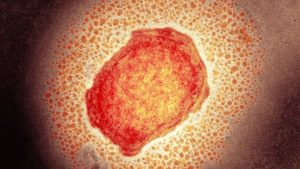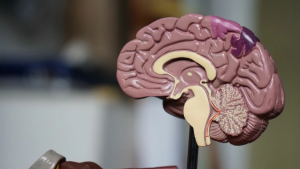What’s Up With The Deltacron Variant?

On January 7, 2022, the world was in its TGIF mood on the first Friday of the year. But at the same time, scientists at the University of Cyprus announced the discovery of a new variant of SARS-CoV-2 (a.k.a. Covid-19).
The new variant was introduced as Deltacron, the hybrid of Delta and Omicron variants. The Cyprus team further added that Deltacron had been identified in 25 individuals thus far. This started panic waves— both online and offline.

But it didn’t last long. Skeptics were quick to dismiss Deltacron and associated reports. Why did that happen and why is deltacron grabbing the headlines again now?
Let’s look into the chronological order of events surrounding the deltacron variant.
How are new variants identified?
Since the beginning of the Covid-19 pandemic, we’ve heard the news on new strains of variants more than often. But how are they identified in the first place?
Firstly, positive Covid-19 PCR test samples will be collected by a group of researchers. In Malaysia, there are 30 accredited labs for Covid-19 samples testing [1]. The researchers will run a process called genomic sequencing on these samples. This process allows researchers to look more deeply into the genetic material and monitor the evolution of the Covid-19 virus.

The Covid-19 virus is composed of 30,000 nucleic bases (adenosine, cytosine, guanine, and thymine). A new variant will be identified by comparing the viral nucleic base sequence found in the collected sample and that of the Covid-19 virus. Researchers can also determine if the identified new variants are more infectious and transmissible than older variants.
The Beginning Of Deltacron.
Deltacron is a recombinant variant of viruses. In virology, recombinant viruses are understood to arise when there are a few different variants of a virus circulating in the same proximity. These kinds of mutations can be detrimental, neutral, or sometimes favorable to humanity [2]
According to Leondios Kostrikis, a professor of biological sciences at the University of Cyprus, Deltacron has “omicron-like genetic signatures” with the delta variant genome [3]. As we all know, delta and omicron are two threatening variants that have infected millions worldwide. Therefore, many assume Deltacron, a hybrid of two deleterious variants, to be more deadly to humankind.
Responses From The Public.
Within hours of being in the public eye, the news on Deltacron was quick to be dismissed as just lab contamination. According to Dr. Krutika Kuppalli, the World Health Organization’s (WHO) Covid-19 expert, Deltacron is likely a lab contamination of the omicron variant fragments in a delta variant specimen [4]. Incidences of unintended lab contamination and subsequent sequencing artifacts are relatively common.
Many other credible researchers and scientists echoed this comment. One such statement from Tom Peacock, a virologist at the Imperial College London, explained that the genomic sequences of Deltacron indicate clear signs of contamination. He also voiced that the omicron variant has not circulated long enough in large volumes to produce a true recombinant [5].
Following the global pushback, Leondios Kostrikis publicly expressed his plans to submit his research materials on Deltacron for peer review [6]. However, no follow-up information was released by Leondios Kostrikis after that and the hype surrounding deltacron died down too (or so we thought!)
How Things Took A Turn.
On 17th February, the UK Health Security Agency officials (UKHSA) reported strains of deltacron variant in an examined sample [7]. According to some sources, the patient was simultaneously infected by the Delta and Omicron variants. As a result, the patient developed the “hybrid” variant Deltacron.

Details about detecting deltacron variants in the United Kingdom are still vague. However, the UKHSA has made it clear that they are not too worried about the variant because deltacron cases are overall relatively low.
“We monitor everything as a matter of course, but we are not particularly anxious about this variant. It is on that list just because we are currently looking at it”.
Moreover, no quality studies and research have been conducted on the virulent levels of Deltacron yet. There is also limited evidence on the presence of the Deltacron virus in other parts of the world.
Bottomline
Throughout this chaos, WHO has not yet recognized Deltacron as a new variant [8]. Furthermore, there are no reports of Deltacron cases in Malaysia from the Ministry of Health. On that account, it’s safe to say that Deltacron is not a real threat to us for the time being. But that doesn’t mean it’ll never be.
The pandemic is not over yet. The longer Covid-19 and its variants circulate around us, the more likely it is to mutate or, in this case, turn into a recombinant virus. So, as always, make sure to take all the preemptive measures to curb the spread of Covid-19.
The opinions expressed in the article are the writers’ own and do not reflect the view of MPS YPC.













